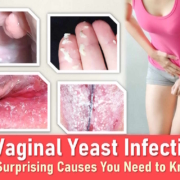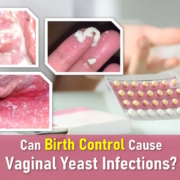Vaginal Itching: Causes, Treatments & When to See a Doctor
An itchy vagina or itchy vulva is a common issue many women face at some point. While occasional irritation is normal, persistent discomfort could signal an underlying condition requiring medical attention. This guide explores the causes, symptoms, and treatments for vaginal itching, empowering you to make informed decisions about your health.
Understanding Vaginal Itching
Vaginal itching, also referred to as vulvar itching, involves irritation in the genital area, including the itchy labia (majora or minora), itchy clitoris, or itchy vaginal opening. Mild itching might resolve on its own, but chronic or severe cases—especially those disrupting sleep or daily life—warrant a doctor’s evaluation.
What Is Pruritus Vulvae?
Pruritus vulvae describes persistent itching of the vulva (the external genitalia, including the itchy inner labia, clitoral hood, and surrounding skin). Unlike temporary irritation, this condition causes ongoing distress, often worsening at night. Roughly 10% of women seek medical help for this issue, which can lead to skin damage from scratching, discomfort during sex, or secondary infections.
Common Causes of Vaginal Itching
An itchy pubic area can stem from infections, skin sensitivities, or hormonal changes. Below are key triggers:
Infections
- Yeast infections (Thrush): A leading cause of vaginal itching, often accompanied by a thick, white “cottage cheese-like” discharge. Common after antibiotic use or during hormonal changes.
- Threadworms: Frequently cause itchy vaginal lips at night, especially in children but also adults.
- Sexually transmitted infections (STIs): Trichomoniasis or genital warts may lead to itchy vaginal opening or irritation.
- Scabies: Causes widespread itching, including the pubic area at night.
Skin Sensitivity & Irritants
The vulva’s delicate skin can react to everyday products, causing feminine itching outside the vagina. Common culprits include:
- Soaps, perfumes, or scented wipes
- Detergents or fabric softeners
- Tight clothing or synthetic underwear
- Panty liners or sanitary products
- Spermicides or condoms
Skin Conditions
- Eczema or psoriasis
- Lichen planus or lichen sclerosus (causing dry, itchy vulva)
Hormonal Changes
- Menopause: Declining estrogen thins vulvar skin, leading to persistent vulvar itching (genitourinary syndrome of menopause). Local estrogen creams or HRT may help.
- Pregnancy: Increased blood flow and swelling (vulvar engorgement) or thrush can cause vaginal itching during pregnancy.
- Breastfeeding: Low estrogen levels mimic menopause symptoms, often resolving after weaning.
Hygiene & Incontinence
Moisture from incontinence can irritate the delicate vulvar skin, leading to persistent itching and discomfort. In young girls, this irritation often stems from improper hygiene practices – particularly wiping back-to-front after bowel movements, which spreads bacteria. Harsh wiping with toilet paper can further aggravate the sensitive skin. Maintaining proper cleansing routines and ensuring thorough drying of the area are essential preventive measures.
Menopause and Hormonal Changes
The hormonal shifts of menopause significantly impact vulvar and vaginal health. As estrogen levels decline, the vulvar skin becomes thinner, less elastic, and more prone to dryness – a condition now medically termed genitourinary syndrome of menopause (GSM). These changes often begin during perimenopause and can cause intense itching along with vaginal dryness that many women find distressing.
Medical solutions are available to alleviate these symptoms. Localized estrogen therapy comes in various forms – creams, pessaries, or vaginal rings – that target genital symptoms specifically. For women experiencing multiple menopausal symptoms, systemic hormone replacement therapy (HRT) in patch or pill form may provide more comprehensive relief by addressing both genital and whole-body concerns.
Pregnancy
Many pregnant women experience vulvar itching due to several physiological changes. Increased blood flow to the pelvic region often causes vulvar engorgement – swelling of the veins in the vulva – which can lead to persistent itchiness. Additionally, hormonal fluctuations during pregnancy alter vaginal pH levels, creating an environment more susceptible to yeast infections. The combination of increased vaginal discharge (leukorrhea) and higher susceptibility to conditions like thrush frequently results in uncomfortable itching. While generally harmless, persistent symptoms should be evaluated by a healthcare provider to rule out infections requiring treatment.
Breastfeeding
New mothers who breastfeed often notice vaginal dryness and itching similar to menopausal symptoms. This occurs because breastfeeding maintains progesterone levels while suppressing estrogen production, creating a hormonal profile resembling perimenopause. The resulting vaginal atrophy can cause significant discomfort, including:
- Persistent vulvar and vaginal itching
- Dryness and irritation during intercourse
- Increased urinary frequency with irritation
Healthcare providers may recommend localized estrogen therapy (creams, tablets, or rings) to relieve these symptoms while maintaining breastfeeding safety. Typically, estrogen levels and associated symptoms normalize within six months postpartum or sooner if breastfeeding ceases earlier. Hydration, vaginal moisturizers, and water-based lubricants can provide additional relief during this transitional period.
Systemic Health Conditions Linked to Vaginal Itching
While vaginal itching often stems from local infections or irritants, it can sometimes indicate underlying systemic health conditions that require medical attention. Several whole-body disorders can manifest with genital itching as one of their symptoms:
Diabetes Mellitus
Women with poorly controlled diabetes frequently experience vulvovaginal itching due to multiple factors. Elevated glucose levels in vaginal secretions create an ideal environment for yeast overgrowth, while diabetic neuropathy may alter normal sensation in the genital area. The frequent urination associated with diabetes can lead to moisture irritation, and compromised immune function increases susceptibility to infections.
This condition often presents as recurrent yeast infections, persistent itchy vaginal lips, and redness in the genital area. Proper blood sugar management typically improves these symptoms significantly, highlighting the importance of diabetes control for vaginal health.
Thyroid Disorders
Both hypothyroidism and hyperthyroidism can contribute to genital itching through different physiological mechanisms. Hypothyroidism may cause dry skin throughout the body, including the vulvar area, while hyperthyroidism can increase skin sensitivity and perspiration, leading to irritation. Additionally, thyroid dysfunction often alters vaginal pH and microbiome balance, creating conditions prone to discomfort.
Patients frequently report worsening of itchy pubic area at night when thyroid levels are unstable. Proper thyroid hormone regulation through medication often resolves these symptoms, though it may take several weeks of treatment to notice full improvement.
Kidney and Liver Disease
Advanced kidney or liver dysfunction can cause genital itching through several pathways. The buildup of toxins in the bloodstream can irritate nerve endings, while secondary hyperparathyroidism common in renal failure contributes to skin changes. In liver disease, bile salt accumulation deposits in skin tissues, and nutritional deficiencies often affect skin integrity.
This type of itching tends to be generalized but often concentrates in warm, moist areas like the genital region. Management focuses on treating the underlying organ dysfunction, though topical therapies may provide temporary relief while systemic treatment takes effect.
Medication Side Effects
Several classes of medications may cause vaginal itching as an adverse effect. Antibiotics can disrupt vaginal flora and trigger yeast infections, while ironically, even antifungals may cause allergic reactions in some women. Hormonal therapies, including birth control and fertility medications, often affect vaginal moisture balance.
Chemotherapy drugs frequently cause generalized skin sensitivity, and certain psychiatric medications like SSRIs and mood stabilizers can similarly impact moisture regulation. If medication-induced itching occurs, patients should consult their prescriber about potential alternatives or adjunct therapies rather than discontinuing treatment abruptly.
When vaginal itching appears alongside other systemic symptoms like fatigue, unexplained weight changes, or urinary pattern alterations, professional evaluation becomes crucial. Simple blood tests can identify many underlying conditions that require specific treatment beyond symptomatic relief of the itching itself.
Vulvar Cancer and Precancerous Conditions
Though rare, vulvar cancer or precancerous changes (vulvar intraepithelial neoplasia/VIN) can present with:
- Persistent itchy clitoris or clitoral hood.
- Visible lumps, sores, or skin thickening.
Note: Early evaluation is critical for unusual or lasting symptoms.
Stress and Unknown Causes
Stress can worsen vaginal itching, even after treating the original cause, by heightening skin sensitivity. In some cases, no clear cause is found despite thorough testing. If itchy inner labia or vulvar itching persists, a dermatologist or gynecologist may recommend specialized treatments like low-dose steroids or nerve-calming creams.
When to see a Doctor
While many cases of vaginal itching resolve with self-care, certain situations warrant professional evaluation. Schedule an appointment with your healthcare provider if you experience:
- Persistent itching lasting more than one week or symptoms that worsen over time
- No improvement after completing over-the-counter antifungal treatments
- Unusual vaginal discharge with changes in color, consistency, or odor
- Visible skin changes including redness, swelling, sores, or lesions
- Recurrent episodes of itching (more than four times per year)
The Diagnostic Process
During your evaluation, your provider will typically:
- Conduct a thorough visual examination of the vulvar area
- Perform vaginal swabs to test for infections like yeast, bacterial vaginosis, or STIs
- Review your medical history, hygiene practices, and sexual health
- For pediatric cases, focus on external examination and hygiene recommendations
Additional testing may include blood work to check for diabetes or thyroid disorders, patch testing for allergies, or in rare cases, a vulvar biopsy to evaluate suspicious skin changes.
Treatment Approaches for Vaginal Itching
Medical Therapies
For specific conditions, your provider may recommend:
- Antifungal medications: Oral or topical treatments for yeast infections
- Antibiotics: For bacterial infections or certain STIs
- Topical steroids: Low-potency formulations for inflammatory skin conditions
- Hormonal treatments: Vaginal estrogen for menopausal symptoms
Supportive Care Strategies
Complementary approaches to relieve discomfort:
- Use hypoallergenic, fragrance-free moisturizers
- Apply cool compresses to soothe irritation
- Wear loose, breathable cotton clothing
- Practice gentle vulvar hygiene with mild cleansers
Prevention Tips
Reduce recurrence risk through these evidence-based practices:
- Optimal hygiene: Gentle cleansing, proper wiping technique, and thorough drying
- Clothing choices: Breathable fabrics and loose-fitting garments
- Product selection: Avoiding potential irritants in personal care items
- Lifestyle factors: Stress management and balanced nutrition
When to Follow Up
Monitor your symptoms and return for reevaluation if:
- Prescribed treatments don’t provide adequate relief
- New or worsening symptoms develop
- You experience recurrent episodes despite preventive measures
Final Thoughts
Vaginal itching is a common but manageable concern. By understanding when to seek help, following recommended treatments, and implementing preventive strategies, most women achieve significant symptom relief. Remember that persistent symptoms deserve professional evaluation to rule out underlying conditions and ensure optimal vaginal health.
Frequently Asked Questions About Vaginal Itching
How can I sleep better with nighttime itching?
Nighttime vaginal itching can significantly disrupt sleep. For relief of itchy pubic area at night, consider taking an oral antihistamine like diphenhydramine after consulting your doctor. Applying a cool compress before bed and using fragrance-free moisturizers can help. Wear loose cotton pajamas without underwear and keep your bedroom cool to minimize irritation that might wake you.
Why does sex sometimes cause itching afterward?
Post-intercourse itching around the vaginal opening often stems from allergic reactions to latex condoms or lubricants. Other causes include undiagnosed infections that flare after sex, friction from inadequate lubrication, or STIs like trichomoniasis. Sensitivity to semen or personal care products may also be culprits. If itching persists beyond 24 hours or recurs frequently, consult your healthcare provider.
What OTC creams help relieve vaginal itching?
Several over-the-counter options can provide relief. For yeast infections, Monistat (Miconazole) or Clotrimazole are effective. Vagisil offers temporary relief with its benzocaine formula, while Cortizone-10 (1% hydrocortisone) reduces inflammation when used sparingly. For general comfort, fragrance-free emollients like coconut oil can soothe irritation. Remember these treat symptoms but not underlying causes.
Is pregnancy-related vaginal itching normal?
Vaginal itching during pregnancy is common due to hormonal changes that alter vaginal pH and increased blood flow causing vulvar engorgement. The higher susceptibility to yeast infections during this time also contributes. While usually harmless, severe itching accompanied by unusual discharge or that doesn’t respond to basic care warrants consultation with your OB-GYN.
Can stress really cause vaginal itching?
Stress can indeed lead to itchy labia through multiple pathways. It weakens immune function, allowing yeast overgrowth, and exacerbates skin conditions like eczema. Stress also increases histamine release, intensifying itching sensations, and can disrupt normal vaginal flora balance. Incorporating stress management techniques may help reduce these symptoms.
Why does my vagina itch after my period?
Itchy vagina after period occurs because menstrual blood alters vaginal pH, creating irritation. Pads or tampons may cause contact dermatitis, while hormonal fluctuations affect vaginal moisture. Residual blood can also promote bacterial growth. Switching to hypoallergenic menstrual products and maintaining good hygiene often helps prevent this cyclical irritation.
What causes persistent vulvar itching without discharge?
Persistent vulvar itching without discharge could indicate dermatological conditions like lichen sclerosus, allergic contact dermatitis from products, or (rarely) early-stage vulvar cancer. Neuropathic itching from nerve irritation is another possibility. Any unexplained itching lasting more than two weeks requires medical evaluation to identify the underlying cause.
How can I soothe itchy labia majora specifically?
For itchy labia majora relief, apply cool compresses with clean washcloths and use fragrance-free emollients like petroleum jelly. Wear loose clothing to minimize friction and avoid shaving or waxing the area. Oatmeal baths can provide natural soothing. If symptoms persist beyond three days despite these measures, consult a healthcare provider for proper assessment.









